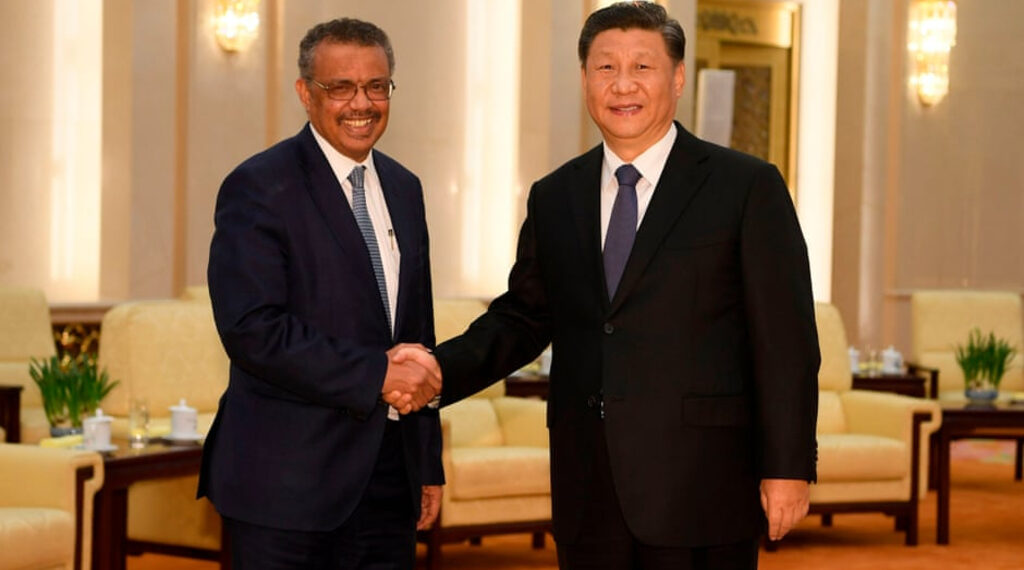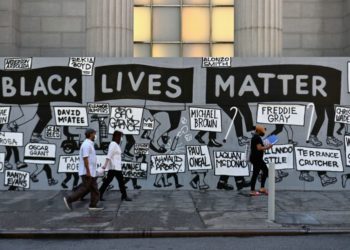The World Health Organization’s (WHO) relationship with China has been under the spotlight since day one of the pandemic — and faces even more intense scrutiny after the Covid-19 origins report became public on Monday.
Critics believe Beijing has given the WHO the runaround throughout the crisis, and suggest China has been less than forthcoming with data that could help solve the mystery behind the global crisis.
Soon after the first Covid-19 cases were recorded in Wuhan in December 2019, the UN health agency started facing accusations of being too soft with Beijing.
The WHO has a delicate balancing act to perform. It needs the cooperation of the host country before launching an investigation.
It took more than a year for a team of international experts assembled by the WHO to make it to Wuhan, starting their origins probe in the Chinese city in January 2021.
While some question how open China has been with crucial data on the initial outbreak, others insist the investigation was a harmonious joint effort, reliant on cooperation between the WHO and Beijing.
‘Institutional complicity’
Human Rights Watch director Ken Roth said the WHO was guilty of “institutional complicity” when it gave credence to some of Beijing’s early claims about the outbreak.
“WHO has absolutely refused as an institution to say anything critical about China’s cover-up of human-to-human transmission, or its ongoing refusal to provide the basic evidence,” he told reporters last month.
“What we need is an honest, vigorous inquiry rather than further deference to China’s cover-up efforts.”
One diplomatic observer in Geneva said the WHO had let China do the preliminary investigative work on its own, and then control the terms of the investigation — while some member states, who criticized the situation in private, steered away from public criticsm.
Former US President Donald Trump famously slammed the WHO over its relationship with Beijing.
He accused the WHO of being a “puppet of China” and even covering up the initial outbreak of the virus.
He began the 12-month process of withdrawing from the organization last July — a policy immediately reversed by his successor Joe Biden in January.
Smooth co-operator
However, the new administration remains sceptical of how transparent Beijing has been with the WHO.
Mark Cassayre, the top US diplomat in Geneva, said Wednesday that Washington was “dismayed” by the long delay in getting the investigation team to China.
Whether the experts were able to conduct their investigation “in a transparent and unhindered manner… remains to be seen”, Cassayre said.
“That’s going to be the barometer by which we can judge that relationship” between the WHO and China, he added.
Trump’s retreat from the WHO means Washington is now trying to reassert its influence in the space he abandoned — which some saw as an open invitation for China to step into.
Washington carried clout as the WHO’s biggest donor. While the United States contributed $853 million in 2018-19, China put in $89 million. The financial gap was one of Trump’s key grievances.
Biden’s administration has now pledged $4 billion to the Covax Covid-19 vaccine facility, ensuring poorer nations can access doses.
Chen Xu, China’s ambassador in Geneva, said Trump’s puppet accusations about Beijing and the WHO were “groundless”.
“Co-operation between China and the WHO… has been in a very good pattern over the years,” he said, calling relations over the pandemic “smooth and comprehensive”.
David Heymann, who chairs the WHO Strategic and Technical Advisory Group on Infectious Hazards, praised Chinese cooperation.
The information “freely provided by China” to the group early in the pandemic “provided rapid understanding of transmission”, he told AFP.
When asked for information, “it was provided within a short period of time”, he said.
Question of leverage
But Walter Stevens, the European Union’s ambassador to the UN in Geneva, said Beijing, feeling “under pressure”, was not necessarily smoothing the path to answers.
“They make… life not always easy,” the Belgian diplomat said.
But Stevens suggested the problem was more one of the WHO’s leverage rather than China’s attitude.
He added: “I don’t fully agree… that China is taking over WHO”.
WHO chief Tedros Adhanom Ghebreyesus issued a rare public rebuke of Beijing on January 5, when the incoming origins investigators — some of whom were mid-flight — were briefly denied entry permission.
Some critics feel the tortuous path to the origins report has cost the WHO credibility.
However, Wuhan mission leader Peter Ben Embarek said it would have been difficult to go to China much earlier — and the preparatory material worked on by Chinese scientists would not have been ready.
One of the team members has suggested making such investigations automatic after an outbreak, to take the controversy and delicacy out of the situation.
“If we want to move beyond this sensitivity, let’s just make it routine, standard,” said Dutch virologist Marion Koopmans.























